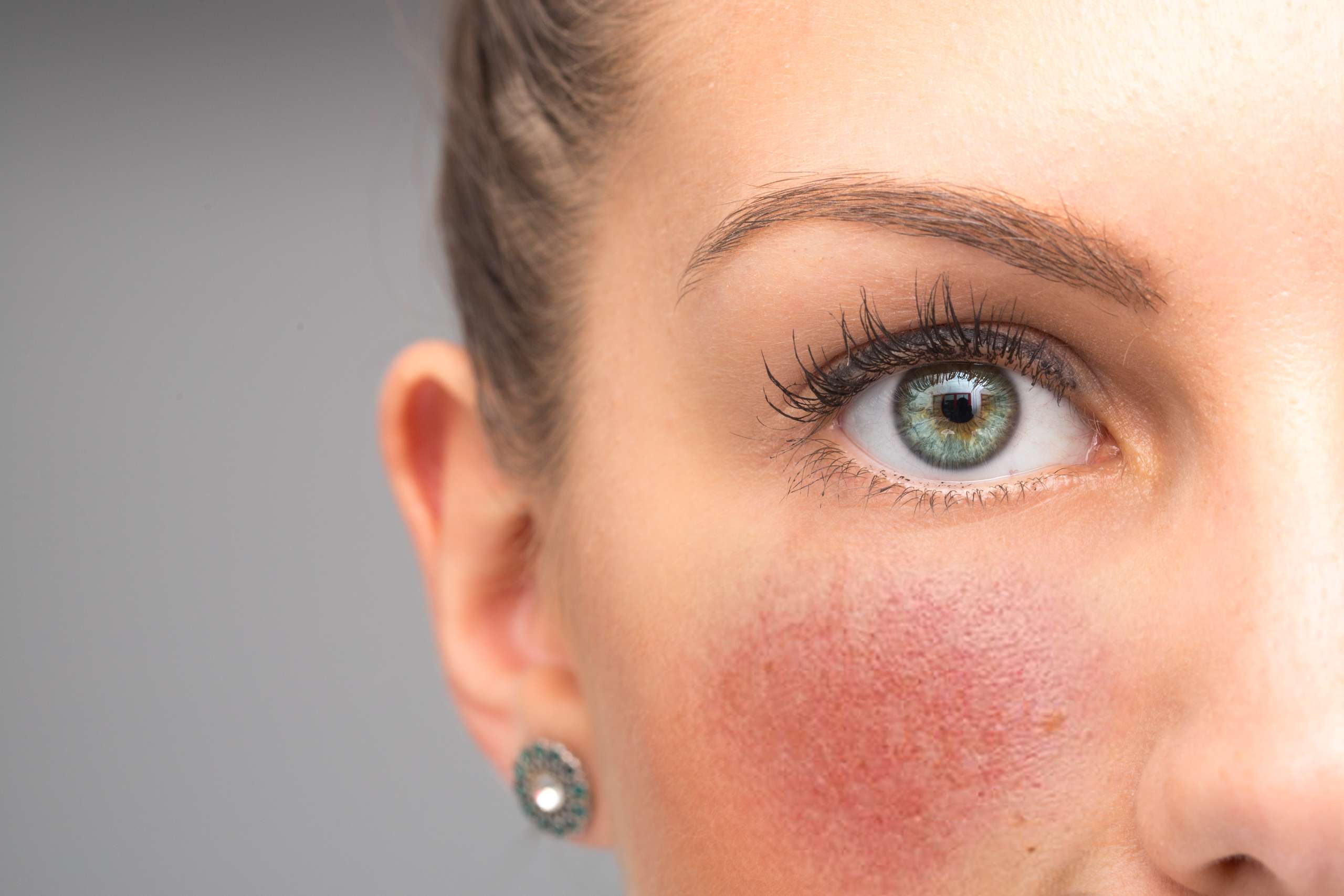At DermDox, we offer specialized services for individuals dealing with rosacea, a chronic skin condition that primarily affects the face, causing redness, visible blood vessels, bumps, and pimples. Our dedicated team of dermatologists understands the impact that rosacea can have on both physical appearance and emotional well-being. Through our comprehensive rosacea services, we provide tailored treatment plans designed to manage and alleviate the symptoms associated with this condition. Our experienced professionals employ a combination of advanced therapies, topical medications, laser treatments, and lifestyle recommendations to minimize redness, reduce inflammation, and improve overall skin texture for our patients.
In addition to providing effective treatments, DermDox focuses on patient education and support. We believe in empowering our patients with knowledge about rosacea triggers, proper skincare routines, and lifestyle modifications that can help manage their condition effectively. Our compassionate and skilled dermatologists work closely with each individual to develop personalized strategies that not only address the visible symptoms of rosacea but also enhance their confidence and quality of life. By offering specialized rosacea services, DermDox is committed to helping patients achieve clearer, healthier skin and regain their self-assurance, ensuring their journey towards better skin health is supported every step of the way.
Frequently Asked Questions
The exact cause of rosacea is not fully understood, but it is believed to result from a combination of genetic, environmental, and lifestyle factors. While the precise cause varies from person to person, some common triggers and factors associated with the development and exacerbation of rosacea include:
Genetics: A family history of rosacea may increase an individual’s susceptibility to the condition, suggesting a genetic predisposition.
Dermatitis: Certain skin mites, called Demodex mites, are found in higher numbers on the skin of individuals with rosacea. These mites do not cause rosacea but might contribute to its development or exacerbation.
Abnormal Blood Vessels: Abnormalities in the blood vessels of the face, leading to flushing and redness, are considered a significant factor in rosacea.
Sun Exposure: Prolonged exposure to sunlight or extreme temperatures can trigger rosacea or worsen existing symptoms. UV radiation can damage the skin and exacerbate redness and inflammation.
Rosacea is a complex skin condition, and its exact cause is not fully understood. While there is no specific vitamin deficiency that directly causes rosacea, some research suggests that deficiencies in certain vitamins and minerals might contribute to the development or exacerbation of symptoms. For instance, deficiencies in B vitamins, particularly B vitamins like B2 (riboflavin), B6 (pyridoxine), and B12 (cobalamin), have been linked to skin conditions, including rosacea, in some studies.
It’s important to note that these studies are not conclusive, and the relationship between vitamin deficiencies and rosacea is not well-established. Rosacea is a multifactorial condition influenced by genetic, environmental, and lifestyle factors. While maintaining a balanced diet rich in essential vitamins and minerals is essential for overall skin health, it’s best to consult a healthcare professional, preferably a dermatologist, for a proper diagnosis and personalized management plan if you suspect you have rosacea or are experiencing skin-related issues. They can provide appropriate guidance based on your specific symptoms and medical history.
Rosacea triggers can vary from person to person, but certain foods and beverages are commonly reported to exacerbate rosacea symptoms in some individuals. These triggers include:
Spicy Foods: Foods containing spices such as chili powder, hot peppers, and curry can cause flushing and worsen redness in individuals with rosacea.
Hot Beverages: Hot drinks like coffee and tea, as well as hot soups, can lead to increased facial redness and flushing.
Alcohol: Alcoholic beverages, particularly red wine, beer, and hard liquor, can dilate blood vessels and trigger flushing and redness in many individuals with rosacea.
Dairy Products: Some people with rosacea may be sensitive to dairy products. Opting for lactose-free or plant-based alternatives might help in managing symptoms.
Citrus Fruits: Citrus fruits, such as oranges, lemons, limes, and tomatoes, are acidic and can potentially trigger rosacea symptoms in certain individuals.
Histamine-Rich Foods: Histamine is a natural compound involved in the body’s immune response. Foods high in histamine, such as aged cheeses, smoked fish, and processed meats, can trigger symptoms in some people.
Chocolate: Chocolate contains compounds that may dilate blood vessels and contribute to facial flushing and redness in susceptible individuals.
Food Additives and Preservatives: Certain additives and preservatives found in processed foods and condiments may trigger rosacea symptoms in some individuals. It’s advisable to read food labels carefully.
Caffeine: While the link is not well-established, some individuals report increased flushing and redness after consuming caffeinated beverages like coffee and tea.
It’s important to note that triggers can vary widely among individuals, and what affects one person may not affect another.
Rosacea is a chronic condition, which means it typically does not have a permanent cure. However, with proper management and treatment, rosacea symptoms can be controlled and minimized effectively. Many individuals experience periods of improvement and reduced symptoms, especially with appropriate medical care and lifestyle adjustments.
Dermatologists can prescribe topical treatments, oral medications, or laser therapies to manage redness, inflammation, and visible blood vessels associated with rosacea. Additionally, identifying and avoiding triggers, such as certain foods, beverages, and environmental factors, can help prevent flare-ups and improve the overall condition.
While rosacea may not go away permanently, it is manageable.



